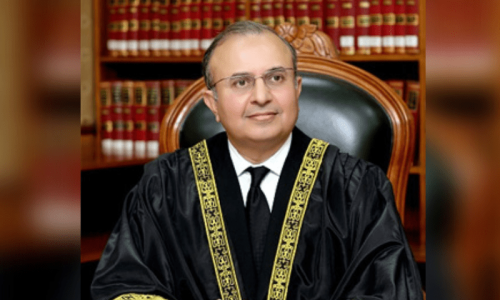State Bank governor has urged the country's Islamic banks to develop ways to reward their customers in line with a surge in the sector's profitability, or face regulatory action.
Islamic finance is experiencing a revival in Pakistan, aided by an ambitious five-year plan that regulators hope will double the industry's share of the banking sector to 20 per cent by 2020.
A growing client base and improving asset quality helped Islamic banks post profits before tax of 12 billion rupees in the third quarter of last year, almost double the year-earlier amount, central bank data shows.
But regulators want to tackle consumer perceptions that Islamic banks falter when it comes to social responsibility and ethical banking practices.
The average financing-to-deposit spread – the difference between what banks charge for financing and what they pay their depositors – for all lenders, Islamic and conventional, remains high and should be "reasonably rationalised", State Bank governor Ashraf Wathra said in a speech to a gathering of industry executives on Monday.
He did not specify a satisfactory level, but singled out Islamic banks as the ones needing to reward customers in line with a rise in profits.
"Banks were advised to come up with their own solutions or the SBP (State Bank of Pakistan) will apply sharia-compliant measures to address the issue," said Wathra.
He did not elaborate, but in the past the State Bank has prescribed minimum targets for banks to lend to specific sectors of the economy such as agriculture and small business.
Islamic banks follow religious principles which ban the charging of interest and gambling, and stress the sharing of risk and profits. The industry has developed a range of sharia-compliant financial tools, some with greater profit-sharing qualities than others.
Islamic banks fall short when it comes to using strongly profit-sharing instruments such as musharaka, whose share of overall Islamic financing in Pakistan was only 10.1 per cent as of September, compared to 4.2 per cent a year earlier.
Musharaka is a partnership in which two or more parties agree to provide capital, sharing both profits and losses according to a stipulated ratio.
By contrast, murabaha – a cost-plus-profit arrangement where one party agrees to buy merchandise for another –commands the lion's share of financing by the country's Islamic banks, at 30.3 per cent. Murabaha is often criticised for lacking economic substance and its resemblance to a conventional loan.









































